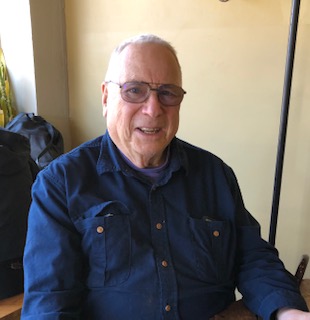Opinion: Democracy in Amherst

Photo: needpix.com. Creative Commons
The following column, “Democracy in Amherst” by Michael Greenebaum, appeared originally in the Indy on September 20, 2019. That column was a reflection of the democratic shortcomings of the town’s new form of governance, eight months into its first year. As Greenebaum notes below, our town has made little progress in advancing the practice of democracy in the nearly six years that have passed since he pointed out many ways in which we could do better. We repost the column now as part of our series, “Practicing Democracy.” With democracy under assault both at home and abroad, it is good for us to talk about what it means to practice democracy and to live in a democratic society. This new column will look at democracy broadly, including how it is actively being dismantled under the Trump/Musk regime, how people have put democracy into good practice, and how we might imagine a more democratic society. We invite our readers to share their thoughts on democracy in the pages of the Indy.

A Preface for 2025
Re-reading this piece from almost six years ago, I find little that I would change. The idea of a Community Advisory Assembly is actually easier to consider today, thanks to the use of Zoom for bringing people together, but I don’t expect today’s Town Council to welcome community advice any more than the first council did. The Home Rule Charter is just as inadequate as it was then, and the Charter Review Commission does not seem interested in making any serious changes to clarify or democratize it. Sadly, the one change I would have to make today is in the last sentence. Indifference to town governance has shown itself to be a serious issue and a genuine threat to democracy. Building for students – whose indifference is understandable – has increased that threat, and it is hard not to see the combined efforts of Amherst Forward, the Business Improvement District, and – I fear – Town Hall as complicit in enlarging this indifference.
Eight months in, Amherst’s Town Council is exhausted, overworked, and testy. Most of these people got what they wanted – a council instead of a town meeting – and they are reaping what they sowed. The charter they wanted is making it almost impossible to govern. They haven’t found a rhythm yet. They are working out their relationship with the Town Manager, since the charter left it in a morass of ambiguity. Is the Manager the town’s executive or the council’s executive?
How do councillors feel about citizen participation in governance? The charter is pretty clear – it wants to limit and control participation. It gives the Town Council and Town Manager wide discretion in choosing the membership of its appointed committees. There is no check on this discretion, and there is no other effective way for residents to participate in shaping decisions. Councillors are good people trying to do their best for the town, but the prospect of getting help or advice makes some councillors testy and annoyed. So we should ask how can we make the Town Council workable for both councillors and the community. But we might also ask how we can make democracy work in Amherst? While these are not the same question, they may have the same answers, one unlikely but desirable and the other likely but undesirable.
The unlikely but desirable answer is some version of a community advisory council. (I have written about this extensively in early editions of The Indy, here, here, and here. ). Democracy requires much more participation than the charter allows or the council desires. Some version of a Community Advisory Council provides a means of extensive participation outside of town government. It might take many different forms. Originally proposed as a function of town government offering analysis and insights to the decision-makers, the Council shelved the idea. That was fine with me; I like the idea of an independent but disciplined forum, open to all residents of whatever age or citizenship, to provide insights about matters before the Council whether it wants to hear them or not. It would not provide checks and balances to the Council and the Manager, but it would perhaps indicate what true checks and balances might look like, and why they are so important. It would provide an opportunity for disagreement and an opportunity for seeking compromise. It would come to votes which, while not binding on the town, might be very useful to it. It would be a great help to the Town Council.
So why is it unlikely? It is a lot of work and takes a lot of time. It would not have the resources of Town Hall to support it, as Town Meeting did. It would have to prove its value rather quickly to receive the confidence of the public and the government. It would have to seek funding for its expenses. It would have to quickly develop policies and procedures to guide its functioning. It would have to build trust, a quality in rather short supply right now.
So something like the Community Advisory Council is a desirable but unlikely answer to the questions of how to make the Town Council work and how to make democracy work in Amherst. The other answer is, in my view, undesirable and likely. It is the development of political parties as an overlay on our town governance.
This has been the story of politics in the United States. Our Constitution, ratified in 1789, makes no mention of political parties, but by 1791 they were strong. Federalists and Anti-federalists vied for votes, controlled their own newspapers, engaged in high-minded argument and dirty tricks. From then on, American government has travelled on two tracks, the constitutional track that promotes checks and balances, and the partisan track that subverts them.
In Amherst we can see the development of parties although they are not at all aligned with national parties. The split here is based both on disagreement on big ideas – development and schools, for example – and on a mutual distrust between those who serve on our boards and committees and those who disagree with decisions that our governing bodies have made. It is the distrust more than the disagreement that has led to the creation of a PAC that seeks to control our governing bodies by drawing up slates of candidates and asking loyalty of its supporters. The next step must almost inevitably be the creation of an “anti-PAC” that will also advance a slate of candidates, aggregate funds and resources to support it and aggressively solicits residents to support and join it. This is such an old story that it can hardly be a surprise.
And perhaps it should not be a source of regret. Even though I think it is undesirable I recognize it as advancing the participation of citizens in their own governance, my primary criterion of democracy. It harnesses political energy at the same time that it transforms disagreement into division. It is the demand for loyalty perhaps that is so deeply unsettling. It replaces individual judgment with a party platform. Nuance, complexity and flexibility disappear from our political talk and thus from our political thinking. Witness the Republicans demand for loyalty and the Democrats discomfort with the division between the “moderates” and the “left.”
Will this happen in Amherst? It is already happening. To me it is sad, but I remind myself that at least it is not the indifference that is the most fatal enemy of democracy.
Michael Greenebaum was Principal of Mark’s Meadow School from 1970 to 1991, and from 1974 taught Organization Studies in the Higher Education Center at the UMass School of Education. He served in Town Meeting from 1992, was on the first Charter Commission in 1993, and served on several town committees including the Town Commercial Relations Committee and the Long Range Planning Committee.
